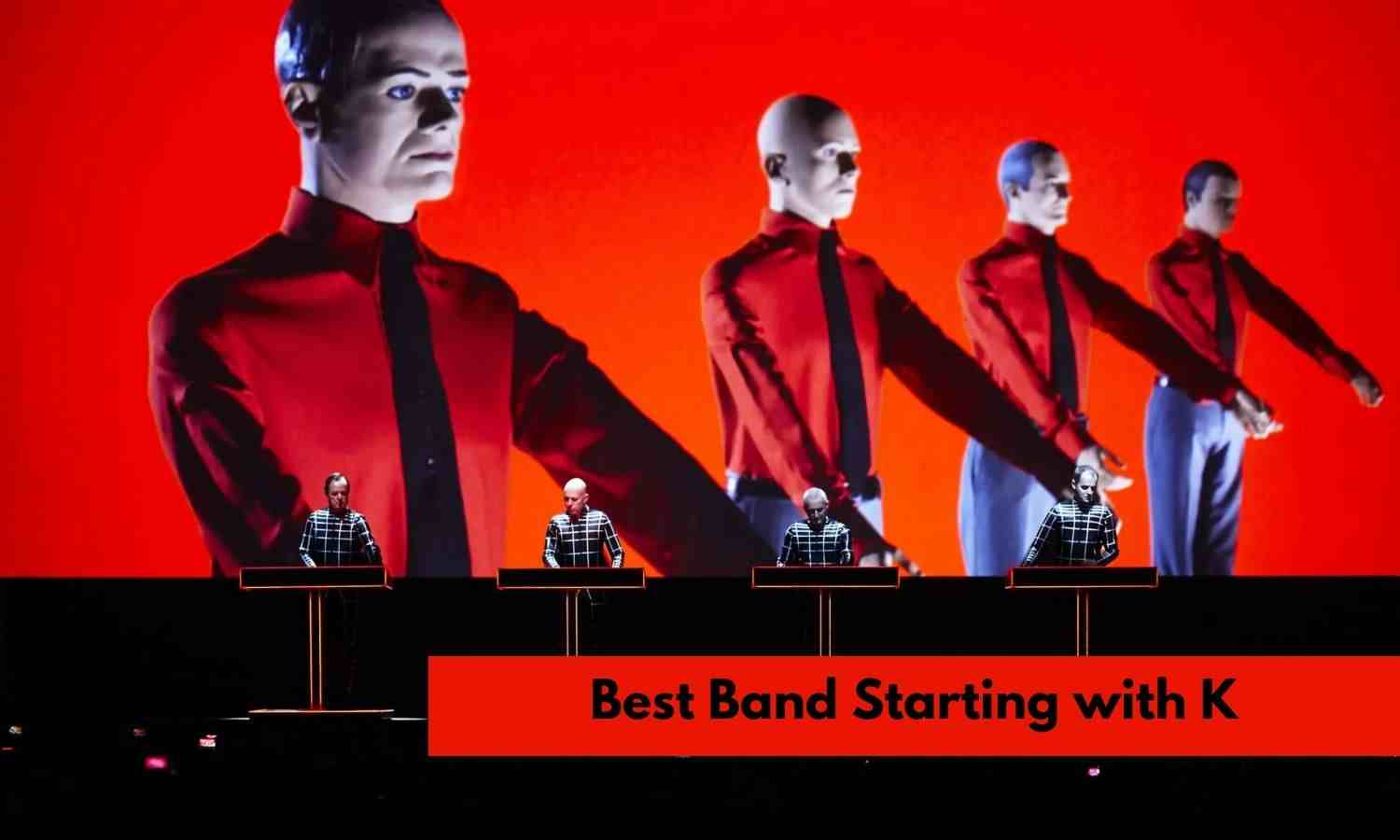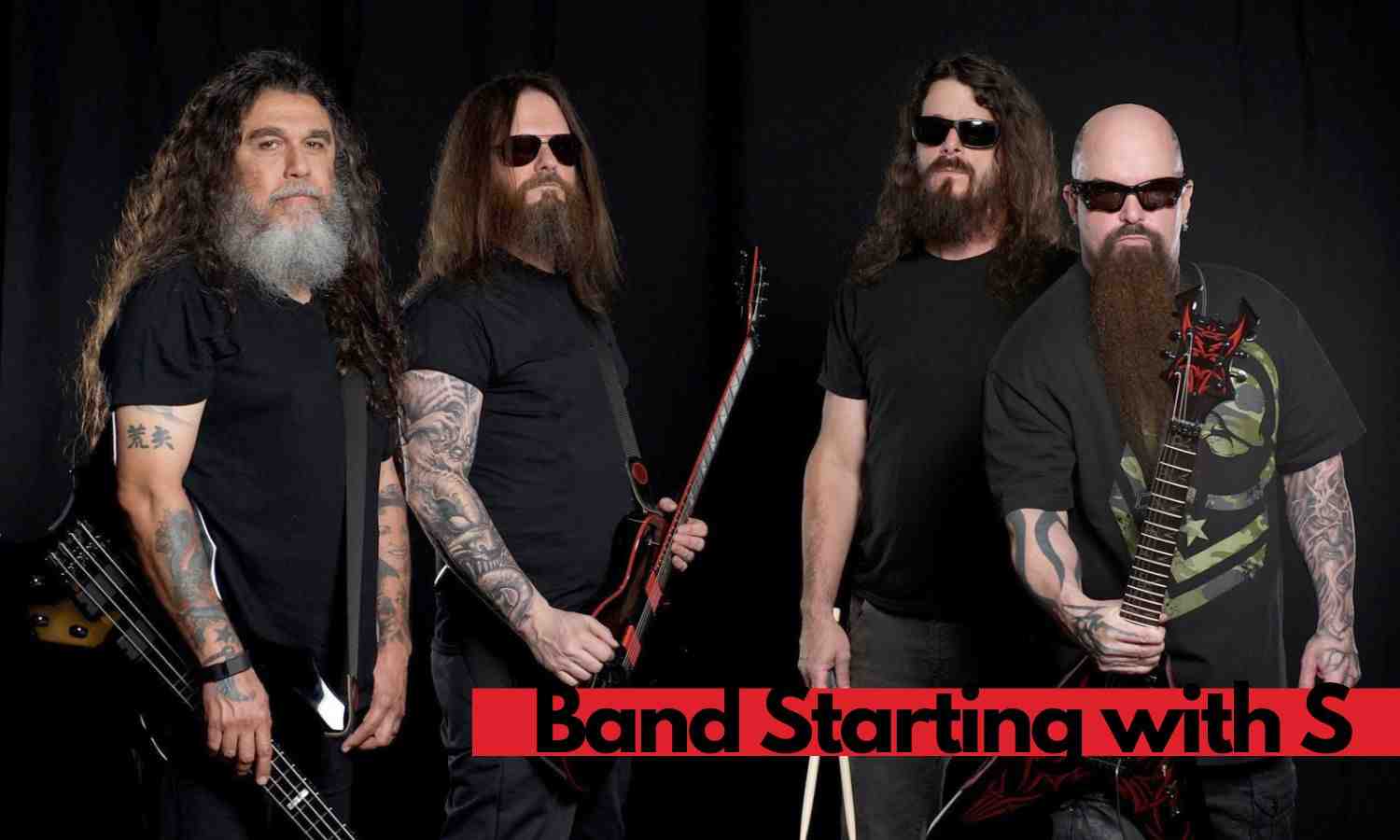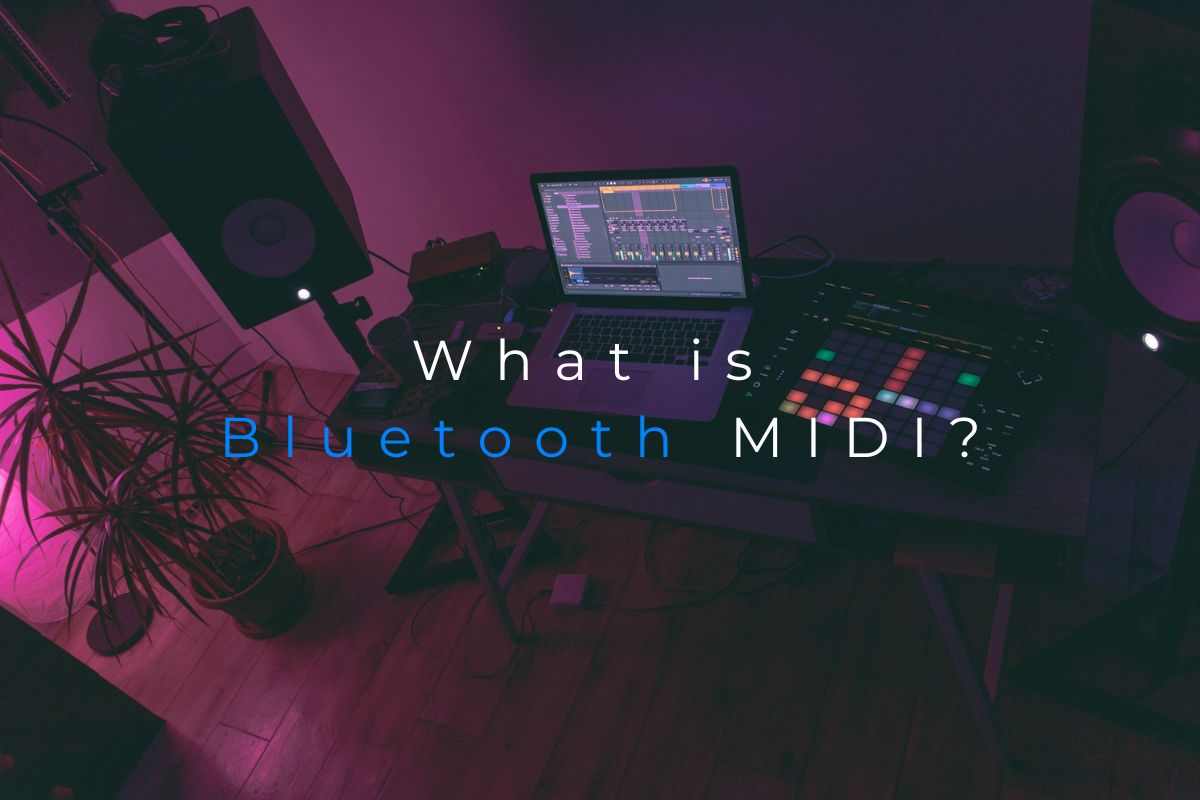The musical letter K has represented many iconic bands that have shaped genres over the decades. From the British Invasion to modern electronic music, these 10 bands that start with K from the 1960s to today all begin their names with the same letter yet could not sound more diverse.
Here are the top Bands that start with the letter K:
| Band | Year Formed | Location | Genre | Notable Members |
|---|---|---|---|---|
| The Kinks | 1964 | Muswell Hill, London, UK | Rock, folk rock, music hall | Ray Davies, Dave Davies |
| The Killers | 2001 | Las Vegas, Nevada, US | Alternative rock, indie rock, synthpop | Brandon Flowers, Ronnie Vannucci Jr. |
| The Knack | 1970s | Los Angeles, California, US | Power pop, new wave | Doug Fieger |
| Kool & the Gang | 1964 | Jersey City, New Jersey, US | Funk, R&B, soul, jazz | Robert “Kool” Bell, Ronald Bell |
| King Crimson | 1968 | London, UK | Progressive rock, art rock, jazz fusion, experimental rock | Robert Fripp, Greg Lake, John Wetton |
| Kansas | 1970 | Topeka, Kansas, US | Progressive rock, art rock, arena rock | Steve Walsh, Kerry Livgren |
| The Knife | 1999 | Stockholm, Sweden | Electronic, experimental, art pop | Olof Dreijer, Karin Dreijer |
| Kraftwerk | 1970 | Düsseldorf, Germany | Electronic, synthpop, krautrock | Ralf Hütter, Florian Schneider |
| Kasabian | 1997 | Leicester, UK | Indie rock, dance-rock | Tom Meighan, Serge Pizzorno |
| Kings of Leon | 1999 | Nashville, Tennessee, US | Southern rock, blues rock, alternative rock | Caleb Followill, Jared Followill, Nathan Followill |
[recommended_posts posts=”1545,1585,1644,1735,1763″]
Best Bands That Start With K
1. The Kinks
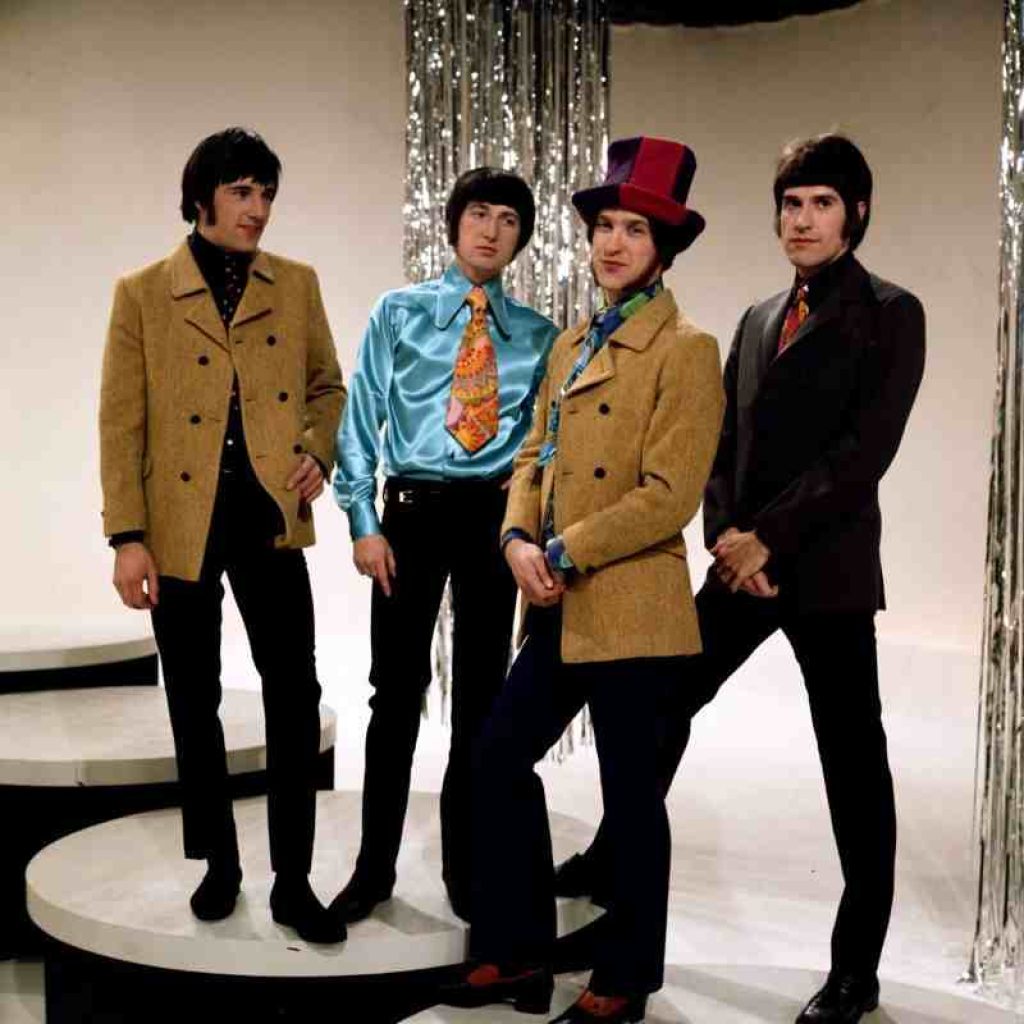
Formed in Muswell Hill, London in 1964, The Kinks were among the most important and influential rock bands to emerge from the British Invasion. Led by siblings Ray and Dave Davies, The Kinks crafted rugged yet melodic singles that captured the energy and attitude of working-class England.
Their early hits like “You Really Got Me” and “All Day and All of the Night” showcased Ray Davies’ gift for memorable hooks and Dave’s explosive guitar work. 1967’s “Waterloo Sunset” is considered one of the most beautiful songs in rock with its vivid portrait of London life.
Ray Davies’ songwriting grew richer with conceptual albums like Arthur or the Decline and Fall of the British Empire. The band faced difficulties in the US due to bans but found continued success in the UK.
Their music challenged conventions through eclectic styles ranging from music hall to folk rock. The Kinks helped diversify rock music and establish it as an art form open to varied genres of expression.
2. The Killers
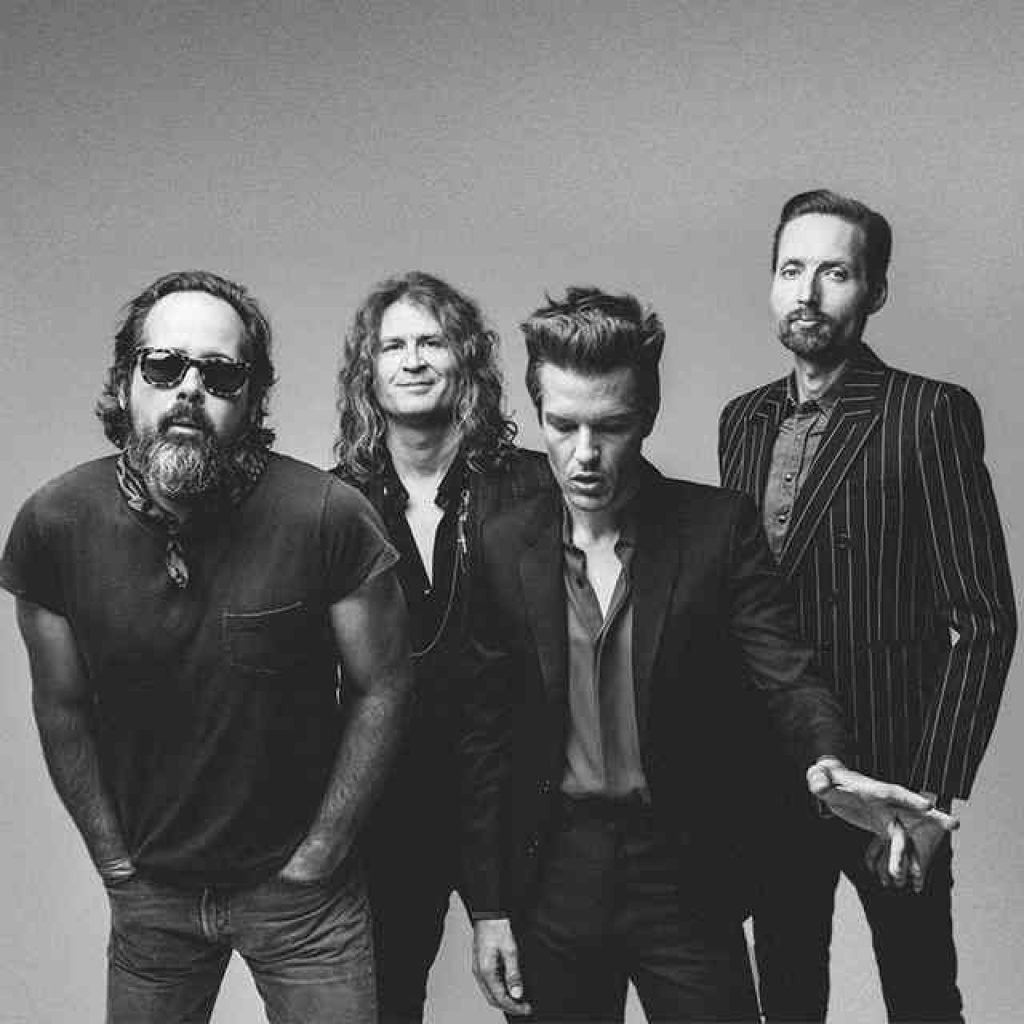
Hailing from Las Vegas, Nevada, The Killers formed in 2001 and broke out in 2004 with their debut Hot Fuss. Led by frontman Brandon Flowers, The Killers merged 1980s-influenced synthpop with heartland rock and anthemic choruses.
“Mr. Brightside,” “Somebody Told Me,” and “When You Were Young” exemplified their signature sound and storytelling style. Subsequent albums like Sam’s Town and Day & Age saw the band experimenting with different genres while retaining their arena-filling grandiosity.
The Killers filled stadiums worldwide on touring to support popular albums. Throughout the 2010s, The Killers proved their staying power with albums like Wonderful Wonderful and their 2019 greatest hits collection that included new hits like “Caution”.
With their polished yet passionate brand of rock, The Killers have attained global fame as modern rock icons celebrated for nearly two decades of consistent success.
3. The Knack
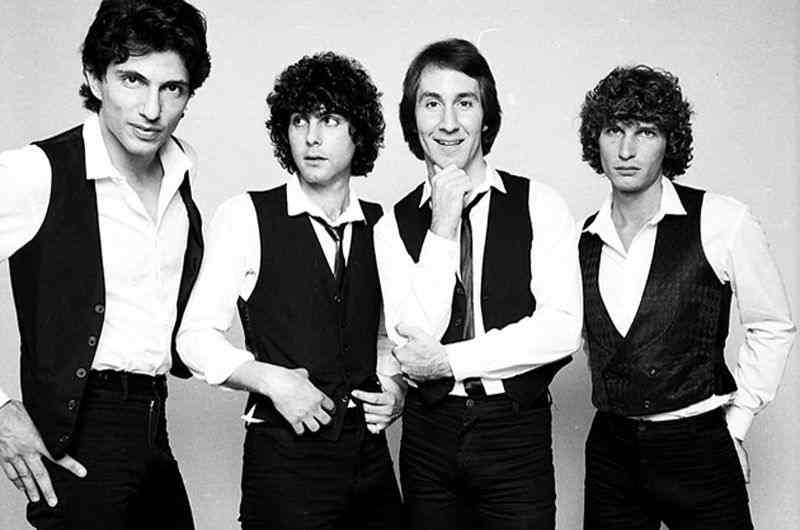
Emerging from Los Angeles in the late 1970s, The Knack was a power pop quartet led by vocalist and guitarist Doug Fieger. Their 1979 debut Get the Knack was among the fastest-selling debuts ever and contained their massive hit “My Sharona.”
Featuring infectious melodies, crisp guitars, and tight harmonies, “My Sharona” defined the essence of power pop – catchy three-minute gems driven by superb hooks and musicianship.
Although they lasted only a few years and a handful of albums, The Knack left a lasting stamp on power pop and new wave with their blend of Beatlesque songcraft and punkish energy.
“My Sharona” demonstrated that concise pop songs with memorable hooks could find mainstream airplay and commercial success even amid the artistic experimentation of the late 1970s. However, internal tensions and a lack of subsequent hits led to the band dissolving after just a few years.
4. Kool & the Gang
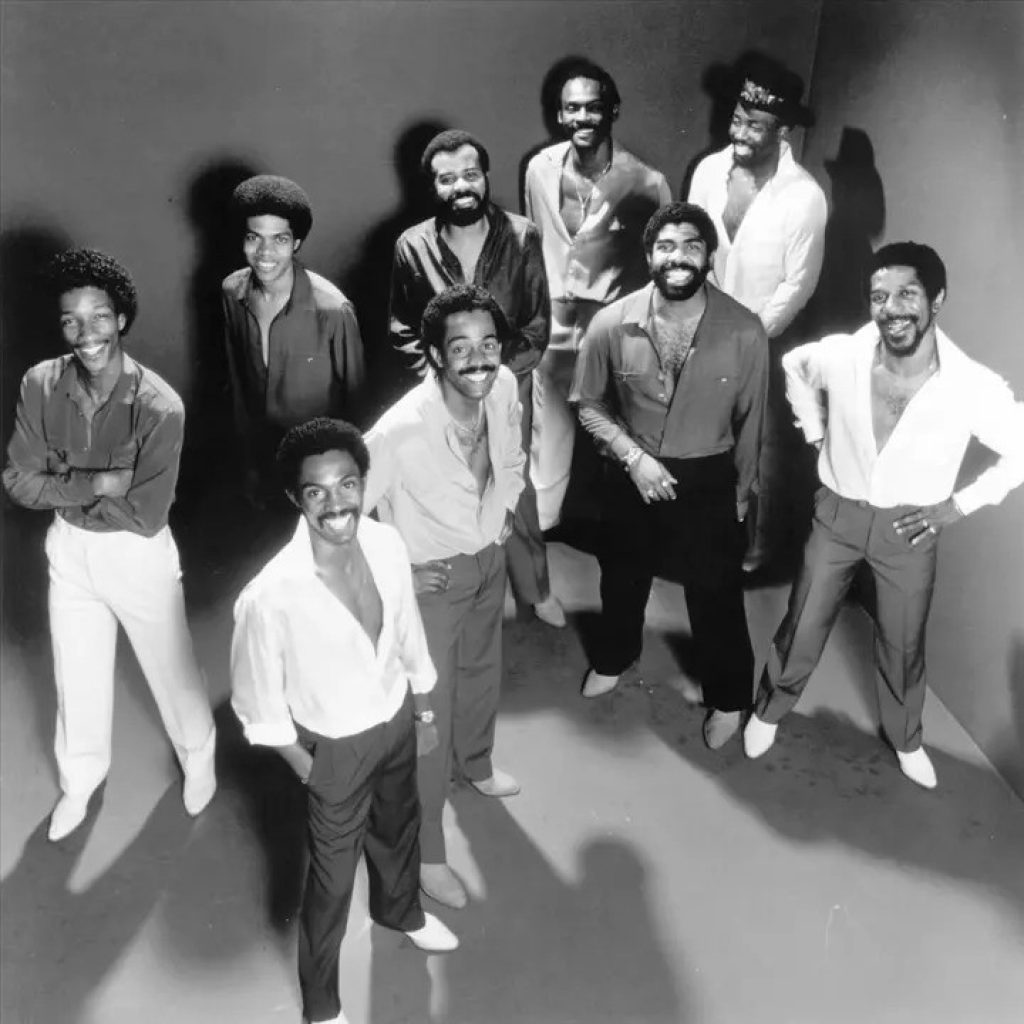
Formed in Jersey City, New Jersey in 1964, Kool & the Gang is renowned for blending funk, jazz, and R&B into a distinctive sound. Led by brothers Robert “Kool” Bell and Ronald Bell, the band rose to prominence in the 1970s with hits like “Jungle Boogie” and “Celebration.”
Blending infectious grooves with positivity and danceability, Kool & the Gang became one of the most sampled acts in hip hop. Later hits in the 1980s like “Cherish,” “Joanna,” and “Fresh” broadened their appeal, demonstrating their mastery of pop hooks.
With their emphasis on brass, percussion, and energetic live shows, Kool & the Gang were pioneers of horn-driven funk and developed sophisticated melodies within the genre.
| Album | Year | Chart Performance | Notable Songs |
|---|---|---|---|
| Kool & the Gang | 1970 | Did Not Chart | – |
| Wild and Peaceful | 1973 | US R&B No. 22 | “Jungle Boogie” |
| Light of Worlds | 1974 | US R&B No. 4 | – |
| Spirit of the Boogie | 1975 | US R&B No. 1 | “Hollywood Swinging” |
| Love & Understanding | 1976 | US R&B No. 10 | “Open Sesame” |
| Celebrate! | 1980 | US No. 7 UK No. 14 | “Celebration” |
| Something Special | 1981 | US R&B No. 4 | “Cherish” |
5. King Crimson
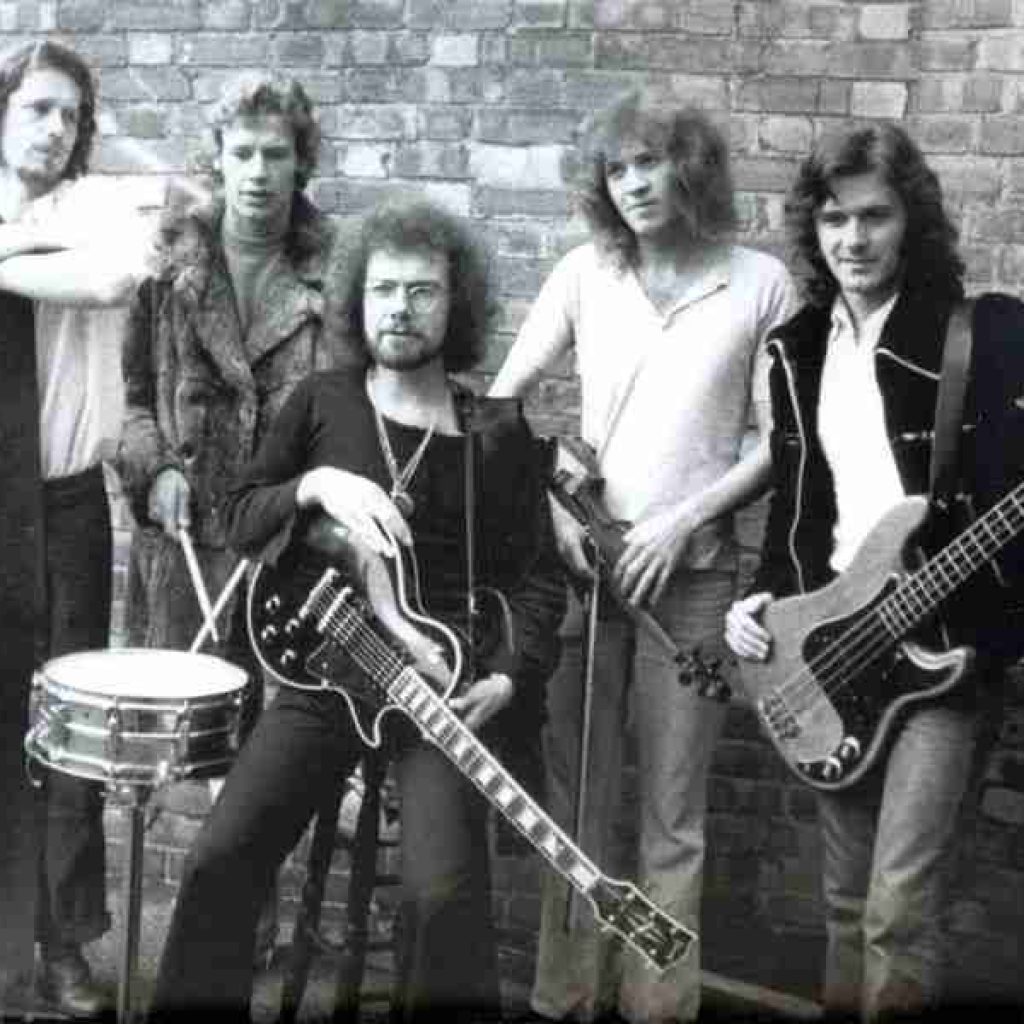
Formed in London in 1968, King Crimson pioneered avant-garde “progressive rock” with their experimental blend of rock, jazz, and classical influences. Led by guitarist Robert Fripp and driven by polyrhythmic precision, King Crimson broke conventions of structure and harmony.
1969’s In the Court of the Crimson King with its atmosphere and depth is hailed as a masterpiece that shaped the budding prog genre. Fripp’s vision for King Crimson allowed the band to constantly reinvent themselves, recruiting brilliant musicians like Greg Lake, John Wetton, and Adrian Belew.
Across 13 studio albums, they explored new sonic territories from jazz fusion to punk-influenced rock. King Crimson gained a devoted cult following despite changing lineups. Their challenging yet enthralling sound opened doors for complexity within rock without sacrificing melody or energy.
6. Kansas
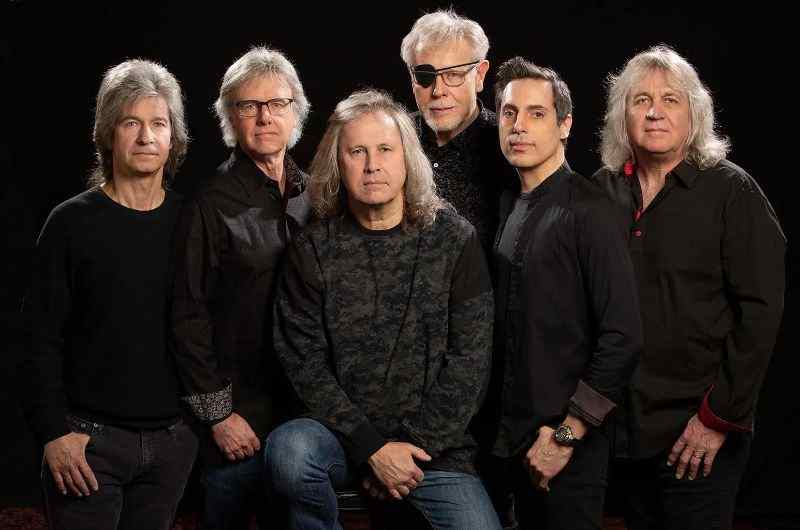
Emerging from Topeka, Kansas in the early 1970s, this band began as a progressive rock group before crossing over to arena rock. Led by virtuoso guitarist Steve Walsh, Kansas became beloved for grand, symphonic-style prog anthems.
Breakthrough album Leftoverture from 1976 contained the radio hits “Carry On Wayward Son” and “Dust in the Wind,” bridging their progressive roots with accessible songcraft. Subsequent singles like “Point of Know Return” sustained their popularity.
While lineup changes impacted their later work, Kansas retained a devoted following with their mastery of pomp rock and beautiful, extended compositions. Kansas would perform highly involved concept shows featuring the full band and even a string orchestra section.
Multi-instrumentalist Steve Morse joined in the 1980s, hinting at jazz fusion influences. Kansas proved that progressive music could fill massive American venues with its epic, melodic brand of art rock.
7. The Knife
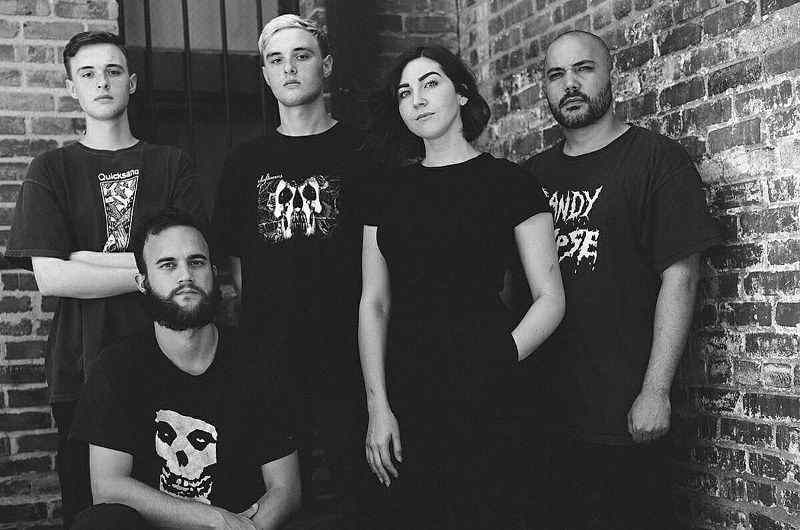
Since forming in Stockholm, Sweden in 1999, The Knife has crafted avant-garde electronic music with minimal means and maximal atmosphere. Siblings Olof and Karin Dreijer combine synthesized textures with oblique lyrics to craft immersive listening experiences rather than mere songs.
Their second album ‘Deep Cuts’ saw them forging a signature sound of haunting melodies and subversive messages. Later works like ‘Silent Shout’ pushed underground electronic styles through adventurous song structures, esoteric narratives, and themes of societal surveillance and LGBT empowerment.
The Knife challenged preconceptions of electronic music, using it as a medium for thought-provoking art pop. Their distinctive vision earned a cult following amongst critics and influenced emerging electronic artists pushing non-mainstream boundaries. The Knife also contributed elements of performance art to their live shows and visuals.
8. Kraftwerk
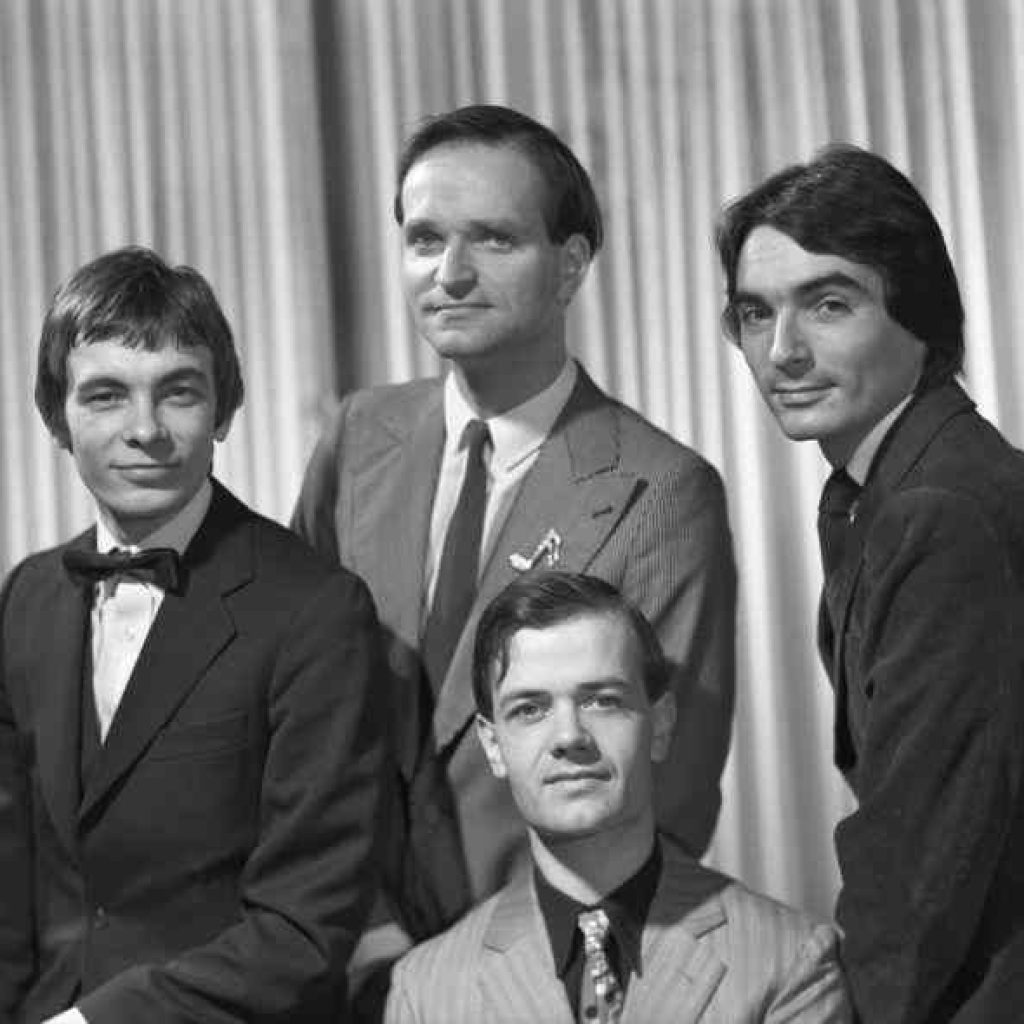
Formed in Düsseldorf, West Germany in 1970, Kraftwerk pioneered electronic music by blending pop structures with experimental techniques. Led by Ralf Hütter and Florian Schneider, Kraftwerk eschewed traditional instruments and live sounds, instead building sonic landscapes from synthesizers, drum machines, and vocoders.
1974’s Autobahn was a breakthrough, crafting the template for synthpop and sampling culture with its trance-like motorik aesthetic. Subsequent albums like ‘Trans-Europe Express’, ‘The Man-Machine’, and ‘Computer World’ developed compelling concepts around travel, technology, and the human-robot relationship.
Always pushing technology’s boundaries, Kraftwerk became influential worldwide through kinetic live performances as well as hits like “The Model” and “Neon Lights.” They established electronic music as a valid artistic expression beyond avant-garde academia.
Furthermore, Kraftwerk set roots for later electronic styles by expertly fusing pop songwriting with experimental production.
9. Kasabian
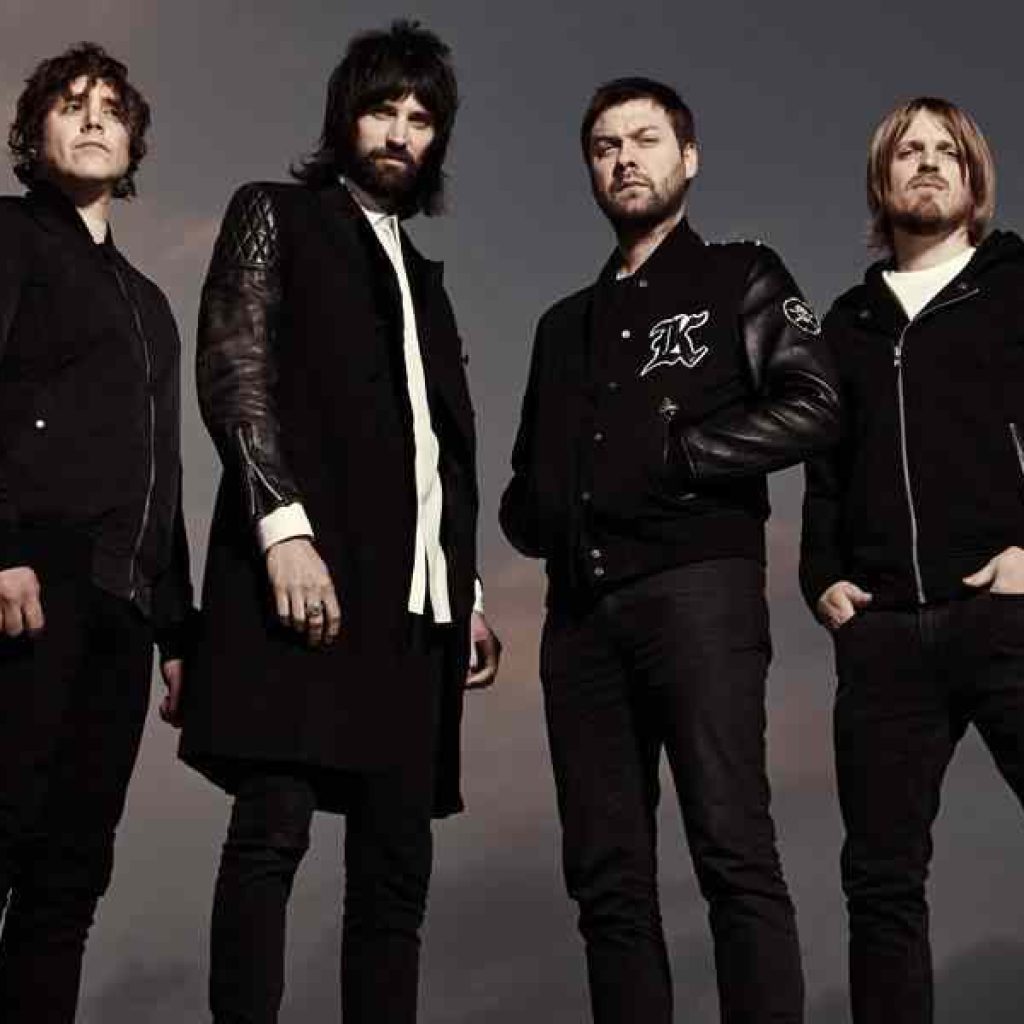
Forming in Leicester, England in 1997, Kasabian inject big melodies, staccato riffs, and dancing rhythms into their blend of indie rock and dance-inflected styles.
Led by singer Tom Meighan and guitarist Serge Pizzorno, Kasabian broke out in 2004 with the single “Club Foot” and their self-titled debut album featuring infectious rockers like “L.S.F.” Subsequent efforts like Empire, Velociraptor!, and For Crying Out Loud sharpened their songcraft while incorporating diverse influences from dancehall to Middle Eastern scales.
Kasabian demonstrates how classic riff-driven rock can be fused triumphantly with electronica through relentless grooves, anthemic choruses, and musically adventurous instincts. A top draw as concert performers, they prove radio-ready songs and experimentation need not conflict.
10. Kings of Leon
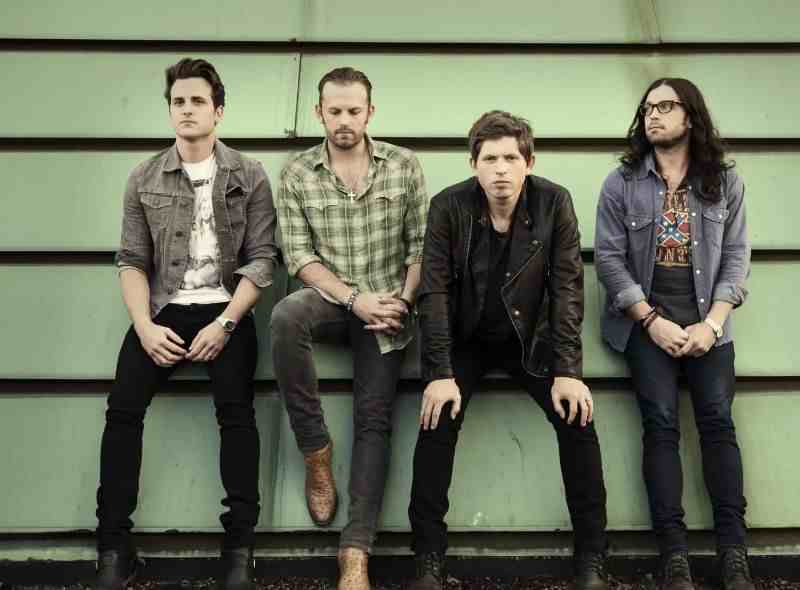
Originating in Nashville, Tennessee, the Followill family collective Kings of Leon emerged in the early 2000s with a vintage southern sound. Debut Youth & Young Manhood in 2003 drew from The Beatles and The Rolling Stones for its earthy rock melodies.
Successor Aha Shake Heartbreak sharpened those rootsier instincts into something more stadium-filling. It was only with 2008’s Only by the Night that mainstream success truly arrived, aided by inescapable hits like “Sex on Fire” and “Use Somebody.”
Since exploring bolder psychedelia and baroque pop textures, Kings of Leon retained their songcraft on tracks like “Waste a Moment” and “Beautiful War.” They bridged the gap between Heritage Southern rock and Contemporary Alternative styles through four decades of classic rock history into a modern yet timeless sound.
bands that start with k: Which One is Your Favourite?
In summary, while hailing from different eras and styles, these 10 bands showcase the enduring strength of music rooted in craftsmanship, originality, and feeling. Their legacy lives on through those still discovering these inspiring artists.
From the R&B genius of ‘Kool & the Gang’ to the electronic visions of ‘Kraftwerk’, each act explored new possibilities within or beyond their genres. Such boundary-pushing creativity and impeccable musicianship ensure these bands beginning with K continue resonating through the decades.

